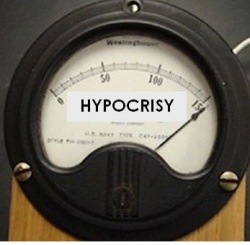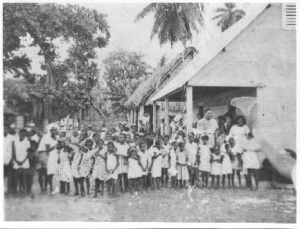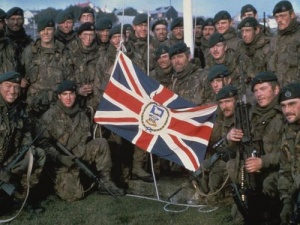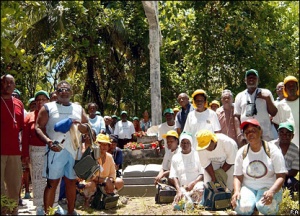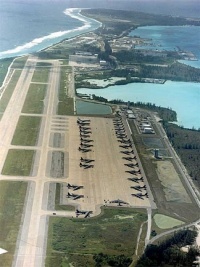Document:Falklands and Chagos - A Tale of Two Islands
| The UK official narrative of the Falklands War is that its primary objective was to free a plucky island people from subjugation by Argentina. This article compares their treatment with that of a similar sized settled, British-protected population, on a similarly remote island archepelago, a decade earlier. |
Subjects: Falkland islands, Chagos Islands, Falklands War
Source: Global Research (Link)
Author's Note
April 2012 marked the 30th anniversary of the 72 day undeclared war between the UK and Argentina over the Falkland (Malvinas) Islands in the South Atlantic. 2012 also marked the 40th anniversary of the establishment of the US military base on Diego Garcia, the largest island of the British Indian Ocean Territories comprising the Chagos Archipelago.
At the time of each event, the islands had settled populations of British subjects numbering around 2,000 each. A comparison of the treatment of these people and their roles in the respective UK Official Narrative of events, is the subject of this article. It is an object lesson in the essentially Machiavellian nature of power in general and of the British State in particular.★ Join the Discussion about this document
Contents
Background
Sovereignty and Settlement of the Falkland Islands
The islands lie about 250 nautical miles off the East coast of Argentina and some 7,000 nautical miles from London. The UK claim to sovereignty dates from 1833 following settlement by small groups of British Nationals. At various earlier and concurrent times there have been French, Spanish and Argentine settlements on the islands. Argentina's sovereignty claim is based on inherited and well documented earlier claims by Spain prior to Argentine independence in 1816 and has been continuously maintained ever since.
Sovereignty and Settlement of the Chagos Islands
Diego Garcia is the largest island of the Chagos Archipelago situated about 5,000 nautical miles from London in the Indian Ocean. Until 1966 the archipelago was part of the self-governing British colony of Mauritius, when it was purchased for the princely sum of £3 million as part of the Mauritian independence settlement. The terms of the purchase allow for return to Mauritian sovereignty 'when the islands are no longer needed for defence purposes' [1]
As with the Falklands, there are many documented sightings by Western navigators (notably Spanish and Portuguese) dating back to the 1500's, together with various transient settlements as early as the late 18th century. Diego Garcia became a British colony following the Napoleonic wars, as part of the treaty of Paris in 1814. The 1960's population have well evidenced claims to continuous settlement dating back to at least the mid-nineteenth century (ie almost exactly the same time span as the Falkland Islanders), most notably - and convincingly - from inscriptions on their aging ancestral tombstones [2]
The Falklands War
The Falklands war proper began on 2 April 1982 when the Argentine military of Dictator General Leopoldo Galtieri invaded the islands. There were no civilian casualties resulting from the invasion itself, and no allegations of mistreatment by the civilian population. It was effectively ended by the surrender of the Argentine garrison commander, General Mario Menendez, on 14 June. The war cost the lives of 655 Argentines, 255 UK military/support personnel and 3 Falkland Island women civilians (killed by Britsh forces shelling during the battle for the capital Port Stanley) [3] [4]. Additionally, in 2002 the South Atlantic Medal Association estimated the number of Falklands veteran suicides since 1982 to exceed the total number of UK deaths during the conflict itself [5]; the figures for Argentine veterans are no doubt similar in scale. Non-fatal physical casualties numbered around 1,060 and the total cost to the UK exchequer is estimated at around £1.5 billion. [6]
British justifications for the war
At the time of the Argentine invasion most people in the UK had never heard of the Falkland Islands, let alone knew their location or anything about their population. Even John Nott, the then UK Defence Secretary, confessed to consulting his office globe to remind him of their location. [7]. However, running counter to their obscurity and the acknowledged marginal viability of their economy (at the time based principally on the export of high quality wool and sheepskin), was emerging evidence of oil deposits around the islands. There was also the question of potential future Antarctic claims which would be enhanced by sovereignty over adjacent territory. But perhaps the strongest factor of all in the decision to launch a military campaign to retake the islands, was the outrage of deeply conservative Foreign Office Mandarins. Steeped in the Imperial hubris of an empire so recently lost, the apoplexy it must have generated in the smoking rooms of Whites, the Travellers and Reform Clubs, is a given; that an uppity South American Dictatorship should dare to challenge the rule of Her Imperial Britannic Majesty was unbelievable and simply could not be allowed to stand. The instinct of Margaret Thatcher - the extreme right-wing prime minister of the day who was in dire need of a populist cause to bolster her collapsing poll ratings - was to provide the necessary political cover. A compliant mainstream media quickly translated all this into a frenzy of patriotic outrage over the fate of a plucky, loyal island people and the stage was set for the carnage to follow.
That narrative - of a plucky island people threatened and trampled upon by a wicked Argentinian dictatorship and deserving of unconditional UK support - remains the public face of UK policy to this day. The policy states "the UK recognises and encourages the Islanders’ right to self determination, including their right to remain British if that is their wish." [8] It is a narrative that is readily accepted and supported by a well-meaning but infinitely gullible majority in the UK itself but, as illustrated so vividly by the events described below, is denied outright to similarly qualified British Subjects elsewhere should they be an obstacle to imperial interests.
The eviction of the Chagossians
There are times when one tragedy, one crime tells us how a whole system works behind its democratic facade and helps us to understand how much of the world is run for the benefit of the powerful and how governments lie. [9]
At the height of the Cold War the search was on for a US military base location capable of facilitating control of the main Indian Ocean shipping lanes and the approaches to the Persian and Arabian Gulfs. In 1961, by arrangement with the UK Foreign Office, this search brought Rear Admiral Grantham of the US Navy to Diego Garcia to survey its suitability. The visit was the precursor to a series of highly secret, jointly planned events and agreements that would, by 1973, see the entire indigenous population of the Islands dispossessed and forcibly deported to Mauritius over 1,000 miles away. John Pilger described the attitude of British officialdom throughout the period as one of "imperious brutality and contempt" for the Chagossians, a description amply evidenced in his award winning 2004 documentary "Stealing a Nation" [10] and in official documents subsequently released by the UK and US governments.
Terms for a US lease on the prospective military base area were negotiated and agreed at $1 per year. They required the islands to be 'swept and sanitised' so as to be handed over uninhabited. In return, the UK was to receive continued support for its so-called 'independent nuclear deterrent' and a £14 million discount on the supply of its submarine launched Polaris ICBM system. As part of its 1968 UN mandated independence demands and in ignorance of the US/UK negotiations, Mauritius agreed to sell the archipelago to the UK and it became the new 'British Indian Ocean Territory (BIOT). The deal was thus completed and the torment of the Chagossians began. From then onward, the Islanders were subject to what amounted to officially sanctioned psychological warfare. Among the many pressures brought to bear on a hapless population, a few stand out in their utter callousness:
- On orders from the then Governor Sir Bruce Greatbatch, the islanders were required to deliver their pet dogs (some 1,500 in total) to a large building with no explanation of the reason. Once delivered they were sealed in and gassed with the exhaust fumes from two US military jeeps and under the supervision of American and British officers.
- Anyone who embarked on a visit to Mauritius for medical treatment or other necessity was forcibly barred from returning.
- The regular supply ship bringing post, fresh milk, dairy products, sugar, salt, oil, medications and other basic supplies was barred from docking at the islands.
By 1973 only some 250 of the indigenous population remained. Allowed to take just one suitcase each, they were forcibly embarked into the holds of the SS Nordvaer, on top of a cargo of bird fertiliser (the decks being reserved for horses) and transported to the Seychelles where they were held in prison cells before being transported to Mauritius. There, in similar fashion to the relatives, friends and fellow Chagossians who had preceded them, they were dumped penniless on the quayside. The Mauritian authorities were later paid £650,000 to compensate for the assistance required of them.
British justifications for the evictions
There were no public attempts at justification by the British until the episode became more widely known through legal disclosure of documents during litigation by the Chagossians and following routine release of classified government papers around the turn of the century. There was no need since the entire project had, by design, been carried out with the utmost secrecy and deceit.
The papers amply confirm the conspiratorial nature of the entire project to hide the true nature of the islands population. They also illustrate Jon Pilger's characterisation of its architects as imperious, brutal and contemptuous of the people whose lives they so casually destroyed.
In chaper 16 of his his book "Web of deceit', historian Mark Curtis says:
The reality that was being concealed was clearly understood. A secret document signed by Michael Stewart [Foreign Secretary] in 1968, said: "By any stretch of the English language, there was an indigenous population, and the Foreign Office knew it." A Foreign Office minute from 1965 recognises policy as "to certify [the Chagossians], more or less fraudulently, as belonging somewhere else". Another Whitehall document was entitled: "Maintaining the Fiction". The Foreign Office legal adviser wrote in January 1970 that it was important "to maintain the fiction that the inhabitants of Chagos are not a permanent or semi-permanent population". [11]
Here are a few more examples:
- Memo dated 1965 from Sir Bruce Greatbatch, Governor of the Islands, to the Foreign Office in the context of the US having made depopulation of the Islands "virually a condition of the agreement": "These people have little aptitude for anything other than growing coconuts.... they are unsophisticated and untrainable,” [12]
- Memo dated 1965. "There IS a civilian population. In practice however, I would advise a policy of 'quiet disregard'. In other words, lets forget about this one until the UN challenges us on it. [13]
- Memo dated August 1966 from Sir Paul Gore Booth to diplomat Dennis Greenhill apropos the implications of the purchase of the archipelago from Mauritius: "We must surely be very tough about this. The object of the exercise was to get some rocks which will remain ours... There will be no indigenous population except seagulls who have not yet got a committee (the Status of Women Committee does not cover the rights of birds).....The United States Government will require the removal of the entire population of the atoll by July.” [14]
- At the bottom of the item 3 memo there is a handwritten note by Dennis Greenhill, later Baron Greenhill of Harrow: "Unfortunately, along with the birds go some few Tarzans or Men Fridays whose origins are obscure and who are hopefully being wished on to Mauritius etc. When this has been done I agree we must be very tough and a submission is being done accordingly.’". [15]
Throughout, there are indications of unease and misgivings about the project, but clearly not out of any concern for the unfortunate population, rather for fear that they might be found out.
Recent developments
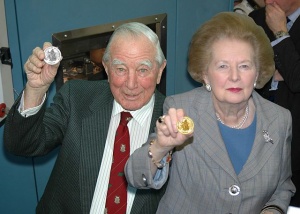
Falklands
At the time of writing a number of recent events are contributing to a forceful reassertion of Argentina's sovereignty claim. Most notably the granting of exploration licences to various oil companies. Questioned in Washington on 14 March 2012 during his US visit, prime minister David Cameron revealed that he had discussed the escalation with President Obama. He went on to say
"To me it is very important that we stick up for the right of self-determination. People in the Falkland Islands want to continue with their British status.... and what I want to do is send a very clear message .... that while the Falkland Islanders want that status, Britain will let them keep that status" [16]
Compare and contrast what Mr Cameron might be required to say were he questioned similarly about the Chagossians.
Diego Garcia
UK Court proceeding initiated by the Chagossians since 2000 are labyrinthine in their complexity and, in spite of notable judgments asserting, at minimum, a qualified right of return, successive British governments have continued with determined and thoroughly deceptive stratagems to prevent ANY return.
For a thorough description of the entire saga and the legal position up to and including the summer of 2006, see the High Court Judgment dated 11 May 2006 [17] which unambiguously affirms their full right of return with a memorable description of the eviction as "...illegal, repugnant and a breach of accepted moral standards" . The judgment is also notable for the comparisons it draws with the case of the Falkland Islands.
The two principle UK government stratagems employed since 2000 are:
- Commissioning a feasibility study on resettlement which controversially provided precisely the conclusions the government wanted and which it used in 2004 as the basis of an 'Order in Council' (an arcane procedure to by-pass both the Courts and Parliament) to overturn a 2000 judgment giving a qualified right of return - i.e. excluding Diego Garcia.
- Declaration of a Marine Preservation Area (MPA) effective from 1 April 2010 which effectively excludes the possibility of return on viability and pollution grounds. There are over 200 scientific papers cited in the bibliography of the Chagos Conservation Trust and used to justify the MPA. Not a single one addresses the impacts of ANY of the following [18]:
- the massive jet fuel spills (totalling more than 1.3 million gallons) at the US military base on Diego Garcia in 1984, 1991, 1997 and 1998
- the 31% observed increase in alien plant species unintentionally introduced in Diego Garcia since 1988 as a result of US military construction and naval operations, including Leucaena leucocephala (listed by IUCN among the top 100 worst invasive species of the world)
- radiation leakages in the Diego Garcia lagoon from US nuclear-powered naval vessels and submarines regularly transiting or permanently stationed there since 1979, and from the transit of 550 tonnes of low-grade uranium in the lagoon in 2008
- harm to marine mammals caused by the US Navy's continued low-to-medium frequency sonar used for submarine monitoring and long-distance underwater sound propagation programmes at its Diego Garcia Ocean Surveillance Station since 1974 (the Chagos Archipelago is part of the International Whaling Commission's Indian Ocean Sanctuary)
As the study cited at 2 above further notes:
The Diego Garcia lagoon (which is part of Britain's Ramsar Convention site No 1077/2UK001) must be the world's only internationally registered nature reserve that also serves as habitat to nuclear submarines, ordnance supply vessels [and a host of other seriously polluting activities - Ed].
In reality the designation can be seen as a cynical flanking move designed to put further obstacles in the way of any possible return by the Chagossians.
A couple of anecdotes
The following anecdotes from 2006 illustrate that imperial arrogance and subliminal racism are alive and well in early 21st Century Servants of the Crown. It is an attitude that, whilst not the root cause of the grossly disparate treatment of Falkland Islanders and Chagossians (see conclusions below), is undoubtedly a significant enabler of it.
Compare and contrast this quote from the sworn affidavit of Chagossian Jaques Gervais Florian
I was on the crew of the Mauritius vessel Le Gentilly which left Mauritius for a [properly licenced ed] fishing campaign on 5 June 2001. The vessel reached the Chagos waters on or about 10 June 2001 and we began fishing on 12 June 2001.
On the same day, we were near the Chagos island called Six Islands. A group of us, all native Chagossians, decided to step on the island to get some coconuts. The group included Pierre Willy Jaffa, Vitalingum Soopramanien, Roselin Permal, France Louis, Felix Flore, Luc Azie. We had been on the island about ten minutes when we saw a ship, the Pacific Marlin, rushing towards us. The officer on board, Glen Quelch, approached us and ordered us off the island immediately. He spoke in a threatening and condescending manner causing us all to feel belittled. We politely informed Mr. Quelch that we were all Chagossian and had been allowed by the High Court of London to be on the Chagos islands. He replied that the judgment was not binding on him and that he was the one to decide whether we could be on the island or not. He then stated that he had decided that if we did not leave the island in three minutes, we would be prosecuted and liable to pay a fine of £200,000. [19]
With these accounts of yachting holidays in the Chagos by..... well you be the judge of the category they belong to:
This from Eric Toyer and Lynn Sands of the Yacht Amarula
"It is easy to see why this remote region is such a magnet for visiting yachts with its stunning islands and clear water, offering fantastic diving, snorkelling, fishing and a totally relaxing Robinson Crusoe style existence.....
The only form of bureaucracy here being the British patrol ship which visits every couple of weeks to collect an $80 fee (which allows up to 3 months stay) from each yacht and to take away the rubbish."
[The Royal Navy as your personal garbage collector eh? - Also see the discussion page for an email exchange between Wikispooks and Lynn Sands Ed]
And this from Al and Beth Liggett:
"Grand Finale. The BIOT officials and the crew of the Pacific Marlin, the Fisheries Patrol boat, threw a big party aboard the ship for all the yachties..... The following night we did turn about and hosted the Pacific Marlin crew and BIOT guys ashore for a pot luck. A couple of the fellows went fishing that day and got some nice wahoo, dorado and yellowfin tuna. We offered fresh sashimi, freshly smoked fish and the good old standby: bar-b-que fish fillets." [20]
Says it all really.
Conclusions
The startling comparisons of this article encapsulate a central - but carefully hidden - tenet of the 'British Imperial Project' through both its nineteenth century rise and its twentieth century decline. Its rise is the story of vast geopolitical ambition which generated, refined and consolidated a complex and ruthless structure of powerful wealthy interests controlling all domestic institutions that mattered. Its decline is the story of that same power structure, fighting a rearguard action of self-preservation involving a complex alliance and integration with the USA on geopolitical/military matters (in a sort of 'UK Consiglieri to US Capofamiglia' relationship [21] ), together with continued pursuit of exactly the same geopolitical objectives. Throughout this period of relative national decline, the 'British Imperial Project' has gradually morphed into the 'Anglo-American Imperial Project' - and more recently into the 'Anglo-American-NATO Imperial Project'
The central tenet in question is that, in the prosecution of imperial geo-policy, humanitarian considerations per se are utterly irrelevant, except in so far as the people involved may represent either an exploitable asset or a disposable liability - i.e. pure Machiavelli. The Falklands population have the good fortune to be in the former category and the Chagossians the misfortune to be in the latter. It really is that simple.
In a final 'coup de grace' insult to the Chagossians, as the last of them were forcibly removed from their homeland, the giant American military base that was to take over their homeland and replace them was officially named "Camp Justice".
A Key Test for International Law
On 21 April 2014, in an article entitled "A Key Test for International Law", Craig Murray wrote:
- The ethnic cleansing by the British of an entire small population and culture – the Chagos Islanders – is probably the most despicable act by Britain of my lifetime. As if the Iraq War and Extraordinary Rendition were not enough, New Labour’s moral dereliction – or more properly evil – was confirmed by the breathtaking cynicism of David Miliband’s proclamation of a Marine Protected Zone around the islands, designed to protect the American base on Diego Garcia and make it impossible for the Chagos Islanders to return to their living as native fishermen, and keep away any eyes that might see the secret prison inmates.[22]
- Extraordinarily and to their eternal shame, a number of prominent British environmentalists and conservationists lent their support to the Diego Garcia marine protected zone. These purblind fools, obsessed with a single cause and blind to wider policy and justice, are in the same category as the ridiculous "feminists" who were co-opted by the neo-conservatives agents (be they propaganda media or secret service or both) to frustrate the aims of Julian Assange and Tommy Sheridan.
- In truth, if colonial conquest and force majeure are legitimate grounds of sovereignty, and if extermination of a population can wipe out the legal right to self-determination, then in international law Britain has the right to Diego Garcia and to give it as tribute to their US overlords. But if international law has any relationship of any kind to principles of justice, then Britain should not be permitted to reap the dubious benefit of genocide. What international law actually is in the neo-conservative era is the real question before the UN tribunal now looking at the Diego Garcia question.[23]
- The UK is represented by Sir Michael Wood. He is the man who overruled my objection inside the FCO to the use of "intelligence" gained from torture, and argued that British cooperation with extraordinary rendition was legal.[24]
- If anybody in Scotland can read through this and read through the links, and does not want to take the chance to leave the stinking cesspit of international shame that is the United Kingdom, they are severely deficient in moral sense.[25]
Diego Garcia - further reading
Probably the most complete source of evidence on the appaling saga of humanitarian abuse and machiavellian offical mendacity that constitutes the history of the establishment and operation of "Camp Justice" on Diego Garcia, can be found on the Chagos Archipelago web site. Many of the secret "Exchange of Notes" between the British and US governments, together with internal FCO memos are available for download from the site in PDF format.
References
- ↑ Mongabay.com - Mauritius History
- ↑ 42 Flags Over Diego Garcia - Zianet.com March 2012
- ↑ UK regret over Falklands dead - BBC 1 April 2007
- ↑ Are you enjoying the day? - Memorial site accessed March 2012]
- ↑ Falkland veterans claim suicide toll - BBC 13 January 2002
- ↑ Aftermath of the Falklands War - Wikipedia
- ↑ The Falkland Islands - a background - History learning site. March 2012
- ↑ South America and South Atlantic Islands - UK Foreign and Commonwealth Office web site. March 2012
- ↑ Diego Garcia: Paradise Cleansed - John Pilger. Guardian 2 October 2004
- ↑ Stealing a Nation - 2004 John Pilger documentary
- ↑ ISBN 0099448394 - Web of Deceit by Mark Curtis. Vintage 2003
- ↑ Diego Garcia: Paradise Cleansed - John Pilger. Antiwar.com 4 October 2004
- ↑ British officials discuss population problem on Diego Garcia - History Commons accessed March 2012
- ↑ US Has Made Depopulation of Chagos Islands ‘Virtually a Condition’' - History Commons accessed March 2012
- ↑ High court decision in favour of the Chagossians - 11 May 2006
- ↑ Argentina Takes Aim At Falklands Oil Firms - Sky News 15 March 2012
- ↑ High court decision in favour of the Chagossians - 11 May 2006
- ↑ Diego Garcia Legal Black Hole - Peter H Sand. Journal of Environmental Law
- ↑ Jaques Florian affidavit - sworn before the Mauritius High Court 9 January 2002
- ↑ Yachting in the Chagos Islands - 'Simply Appalling' 24 May 2006
- ↑ Consiglieri and Capofamiglia - Wikipedia article
- ↑ "The Vicious Cynicism of David Miliband"
- ↑ "Chagos Islands dispute: court to rule on UK sovereignty claim"
- ↑ "Sir Michael Wood's view: 'we are committing no offence by obtaining torture intelligence'."
- ↑ "A Key Test for International Law"
